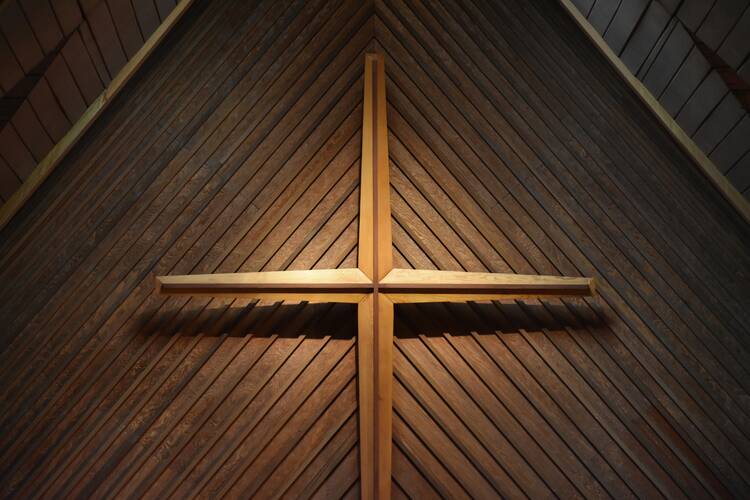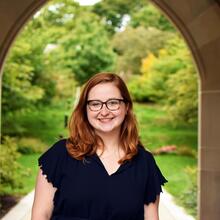A Reflection for Wednesday of the Twenty-seventh Week in Ordinary Time
Find today’s readings here.
“Father, hallowed be your name,
your Kingdom come.
Give us each day our daily bread
and forgive us our sins
for we ourselves forgive everyone in debt to us,
and do not subject us to the final test.” (Lk 11:2-4)
On most days here at the America Media offices, we eat lunch together. What I love most about this time is that we have a truly intergenerational conversation; it’s not often that I sit around a table with people at different stages in their lives and careers who share a meal and conversation as equals. From our youngest interns and postgraduate O’Hare Fellows to our most tenured editors, everyone is welcome to participate. What do we talk about? Well, sometimes it’s just about how we spent our weekends, but other times we discuss the history of the magazine or the American church. We tell stories and listen to stories. I learn something new almost every day.
Recently we ended up in a conversation about saying (or singing) the Our Father at Mass. There were versions of the sung Our Father that those of us on staff who represent Gen Z had never heard before, and while I won’t name names, a few of our colleagues performed some wonderful renditions of 60s Folk Mass standards and a 70s pop/rock version of the Lord’s Prayer—for our cultural edification, of course. (If you weren’t there, I’m sorry to tell you that you really missed out.)
As we sang and laughed and chatted, people around the table shared their preferences for a sung or spoken Our Father. Some felt that a spoken approach allows the congregation to more fully participate. Others liked the fact that singing tends to slow the prayer down, giving its words an opportunity to sink in.
The Our Father, or the Lord’s Prayer, is one of the most fundamental prayers and practices in our faith. Most Catholics have said it thousands of times and may be tempted to go on autopilot when it’s said during Mass. A set of words that’s so familiar can sometimes lose its ability to spiritually stir or strike us, so in an attempt to find meaning, we instead look for new prayers, new ideas, new ways of talking about God and our calling as Christians.
When I heard my colleagues and friends singing a version of the Our Father I’d never heard, it struck me anew. In its simplicity and its directness, it feels like the whole shebang. And it is, isn’t it? It’s in Jesus’ own words, and it covers the major bases of what it means to be a person of faith. It acknowledges, calls upon and praises God. It asks God for our basic needs in life and for forgiveness for our sins. It challenges us to be like God, forgiving the sins of others, with the help of divine grace. It hopes that God will be there, offering us deliverance, until the very end.
Is there much else to say?
If you’re not used to singing the Our Father, maybe it’s worth giving it a try. And conversely, if you always meet this prayer in song at your parish, perhaps try saying it aloud when you’re alone, taking it slowly enough to really contemplate the meaning of its words. Approach the prayer in a way you almost never do, and let that newness shock you into understanding, into spiritual connection, into prayerful awe.
In prayer, it can be helpful to go back to basics. Sometimes the old faithful one you’ve been reciting forever really says it all.








